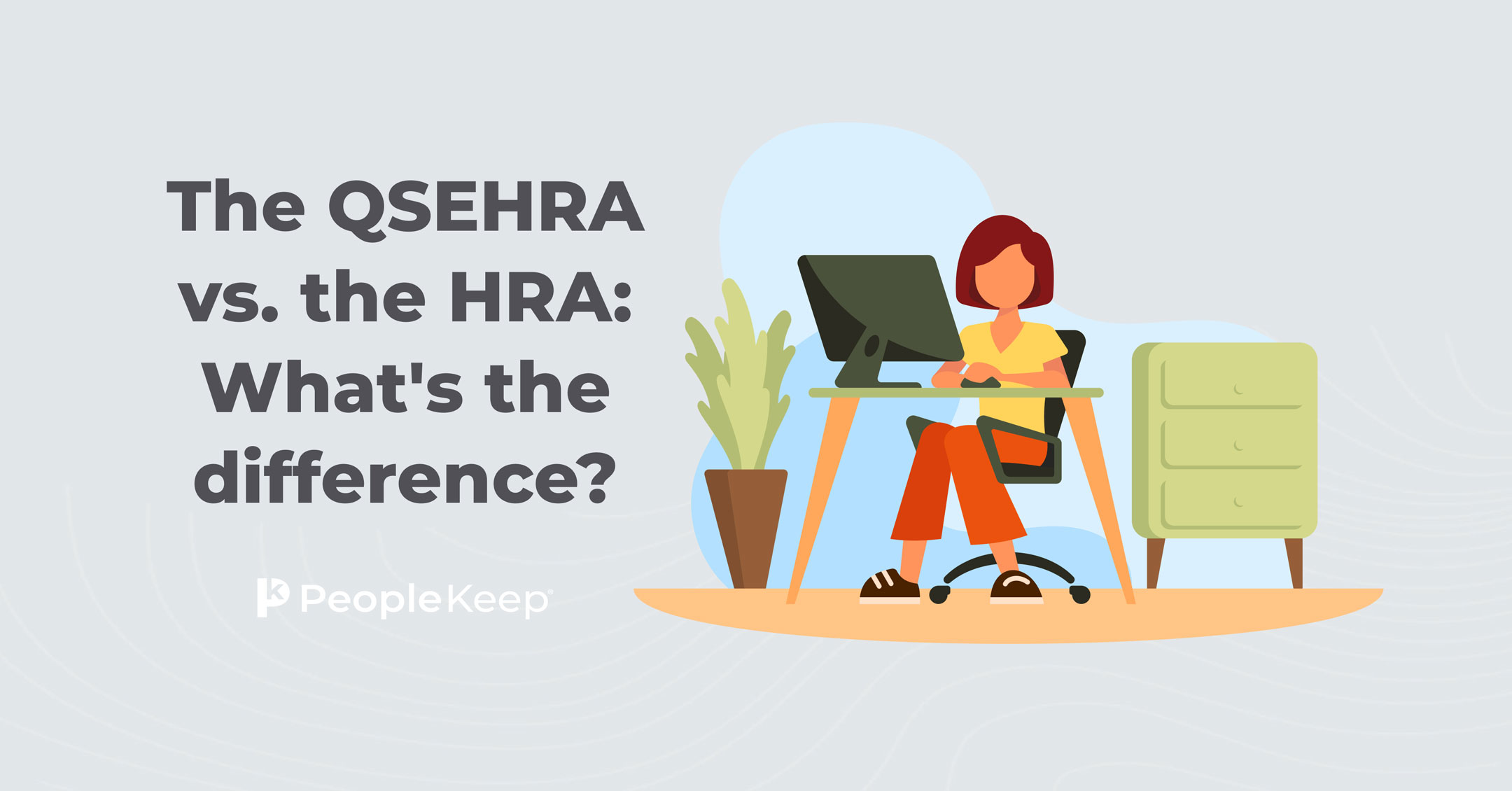Business owner eligibility under a QSEHRA [infographic]
By Holly Bengfort on June 18, 2024 at 7:00 AM
The qualified small employer health reimbursement arrangement (QSEHRA) is a tax-advantaged health benefit that allows small businesses to reimburse employees for their eligible medical expenses, including individual health insurance premiums. As with other formal health benefits, there are specific rules about who's eligible to participate in a QSEHRA, including business owners.
Business owners must meet certain criteria to use a QSEHRA. It's important to understand these requirements to ensure compliance with regulations if you plan to provide this valuable benefit to yourself and your employees. In this article, we'll take a look at the factors that determine business owner eligibility under a QSEHRA.
Takeaways from this blog post:
- Business owner eligibility for a QSEHRA varies depending on business structure. C corporation owners can participate in a QSEHRA, but S corporation owners, partners, and sole proprietors can't.
- Sole proprietors and partners may participate in a QSEHRA through their spouses if their spouses are W-2 employees of the business.
- An LLC is a business structure recognized by the state. Owners must decide on the IRS tax classification they prefer - C corp, S corp, sole proprietorship, or partnership. This classification will determine QSEHRA eligibility.
What is a QSHERA?
A QSEHRA is a type of HRA for small businesses with fewer than 50 full-time equivalent employees (FTEs). Employers can offer it in place of a traditional group health insurance plan. It allows employers to reimburse their employees tax-free for more than 200 eligible expenses, including health insurance premiums. Employers can choose how much they’re willing to spend in monthly allowances up to a certain annual reimbursement limit set by the IRS.
Additional out-of-pocket costs covered by a QSEHRA include:
- Prescription drugs
- Over-the-counter drugs
- Preventive care
- Doctor's visits
- Mental health counseling
All W-2 full-time employees qualify for a QSEHRA. You can also offer it to part-time employees. To be eligible for tax-free reimbursements from a QSEHRA, employees must have a qualified health plan that meets minimum essential coverage (MEC). Employers can vary allowance amounts by employee age, family status, and family size.
Unused amounts roll over from month to month, but if employees don’t use them by the end of the year, they typically stay with the employer.
What are the benefits of a QSEHRA?
Instead of getting stuck with a one-size-fits-all traditional group health plan, a QSEHRA allows your employees to choose the individual health plan that works best for them. They can purchase their own individual health coverage through the Health Insurance Marketplace, a state-based exchange, or directly from an insurance company. Having their own individual health insurance policy gives them more control over their doctors, coverage, and monthly premiums.
They can even participate in a QSEHRA if they have coverage through a parent’s or spouse’s group plan.
Employers enjoy budget control with a QSEHRA. Since you're able to define a set budget, you can help your employees afford their out-of-pocket medical costs and have more control over your health benefits spend than you would with expensive group health coverage. This means you also get to avoid the annual rate hikes that come with a group policy.
Plus, offering a comprehensive health benefit helps improve employee recruitment and retention. According to PeopleKeep's 2024 Employee Benefits Survey, 81% of employees said an employer’s benefits package is an important factor in whether they accept a job. Additionally, 92% of employees rated health benefits as important.
Can a small business owner participate in a QSEHRA?
Many business owners wonder if they can save on medical expenses with a QSEHRA like their employees do. As with many IRS rules, the answer depends. Let's go over which business owners are eligible to participate.
C corporation owners
The IRS recognizes C corporations as separate legal entities from their owners, making C corp owners common-law employees of the corporation. This means they can participate in a QSEHRA with their family members
S corporation owners
An S corp is a pass-through entity, meaning the IRS taxes business owners and shareholders directly instead of the business. Because of this, shareholders aren’t W-2 employees. If you’re a shareholder with more than 2% of shares of an S corp, you can’t participate in a QSEHRA. However, you can still offer a QSEHRA to your employees
Partners
A partnership is a business ownership structure where two or more people share ownership. Much like with an S corp, the federal government taxes business owners directly. Partners also can’t participate in a QSEHRA. However, they may be able to participate in the benefit through their spouse if they’re a W-2 employee of the business.

Sole proprietors
Last but not least, we have sole proprietors. Unfortunately, sole proprietors can’t participate in a QSEHRA either. But, like partners, they may be able to participate in the benefit through their spouse if they’re a W-2 employee of the business.
What about business owner eligibility for a limited liability company?
An LLC is a state-recognized business structure. Owners must choose how they want the IRS to tax their business, either as a C corp, S corp, sole proprietorship, or partnership. You’ll use this federal classification to determine your QSEHRA eligibility.
Can a small business owner participate in an ICHRA?
The individual coverage HRA (ICHRA) is another type of HRA that organizations can offer to reimburse employees for individual health insurance premiums and out-of-pocket expenses. Business owner eligibility for an ICHRA is the same as with a QSEHRA. But, there are some differences in benefit features.
ICHRAs are for employers of all sizes. They can work in place of a traditional group health plan, or you can offer it to classes of employees who don't qualify for the group plan. Eligible employees need coverage through an individual health insurance policy to participate in an ICHRA.
Unlike the QSEHRA, the ICHRA has no minimum or maximum employer contribution limits. This allows you to offer your employees as little or as much as you'd like. Plus, with 11 employee classes to choose from, employers can legally provide differing benefits and allowances based on job-related factors, such as full-time employees or part-time employees.
Conclusion
With a QSEHRA, employers can reimburse their employees for health insurance premiums and more than 200 other eligible expenses. Small business owners can also participate in a QSEHRA if they meet the criteria outlined above. If you're an eligible employer thinking about participating in a QSEHRA, you should consult with a benefits administrator or a tax professional for additional guidance.
This blog post was originally published on June 30, 2017. It was last updated on June 18, 2024.
Check out more resources
See these related articles

HRAs and W-2 annual reporting
Learn about HRA W-2 annual reporting requirements. Understand what employers need to include on employees' W-2 forms for HRA compliance.

What is healthcare reimbursement?
Looking to reimburse your employees for their healthcare expenses? Learn everything you need to know about healthcare reimbursement.

The QSEHRA vs. the HRA: What's the difference?
Confused about the difference between an HRA and a QSEHRA? This guide explains how a QSEHRA compares to other types of HRAs.



